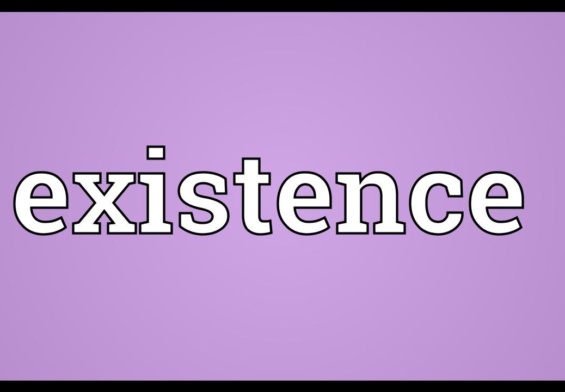
Wonder of five lettered words ‘SORRY’
Wonder of five lettered words ‘SORRY’
The basic consciousness for the cultivation of good life is rooted in the emotional recognition, acceptance and appreciation of the fact that I exist because there are other existences. I exist only with others.
“Man cannot do without man, nor can he do with him”, is the crux of the problem of human existence and organization.
A man cannot enjoy a social life without active dealings with fellow human beings but he finds his greatest mal-adjustment with them at all levels i.e. Family, community, country and international relationship.
In everyday dealings, we make small mistakes in relation to one another. In making payment at a shop, we may unintentionally pay less than what is required, due to poor counting or miscalculation. When the creditor points out the mistake, we express regret and say ‘sorry’ and pay the balance. If a person is standing close behind us and we suddenly turn, our hand may strike him, or we may crush on his foot. On such occasions, it is proper to express regret and say ‘sorry’. There are hundreds and hundreds of situations in life when we unintentionally do or say something that injures or annoys another which could have been avoided.
On the dinner table, we may spill vegetable to the annoyance of the housewife or hostess, fail to pass on a serving dish to another, fail to hear another person asking for something to be passed on to him, or fail to attend to what he wants to say. In short, we may fail to observe table manners. Such failures annoy others. It is good etiquette to say ‘sorry’ in such cases of small annoyance or inconvenience, or injury to others. It avoids unpleasantness and prevents quarrels. If I strike another, even though unintentionally, it can be an occasion for bitter exchanges. If I say ‘sorry’ and mean it, the other person generally accepts the regret in good grace. But I fail to do so and when the other person shows some annoyance, I tell him that it is he who should have been careful and not stood too close behind me, I start the process of throwing brick-bats of charges and counter-charges and spoil the day for him and myself.
When we fail to say sorry, we fail to compensate for our part in the situation causing injury to the other person. In small cases, our part is unintentional and we may not be totally responsible for the injury to the other person. Perhaps, the person whose foot I trampled on was too close behind me and injury could not be avoided, but there is no gain saying that it was through me that the injury was caused. We ought to feel sorry for a situation in which we become instruments of injury to another person.
To say ‘sorry’ when one causes injury or annoyance to another in some way, is good manners and it is good compensation for small injuries. It is not hypocrisy if I say ‘sorry’ even when I do not feel sorry, though it is a less satisfactory state of moral development. Feelings itself is a reality but it takes time to develop. The first stage of morality is to do the right act.
We need to feel sorry not only when we trample on the foot of another fellow human being but we should feel no less paid if we trample on the foot of a dog or if we cut branches of a tree when it should not have been done, or disfigure the desk by writing on it or cutting it with a knife. All moral regrets are regrets for the injury caused to someone or something in the entity. In case of injury to an animal or plant, the true compensation is to help it to recover from its injury. In the case of a material object, there is no compensation for the thing broken beyond repair. Its compensation is futuristic. It is to bestow more care on similar material objects in dealing with them.
We need to have not only a deeper but also a wider concept of injury. We are to make amends not only for the wrong done by us but also for the wrong done by our dear ones, our parents, brothers and sisters, relatives and friends.
Further, we are so situated in life that we cannot avoid injury to others. All life is based on aggressiveness towards others to this day. I cannot avoid killing insect life, how careful I may be. I cannot avoid destroying plant life for my food. I destroy the entity of a plant to get my food. It will be a welcome day when mankind can live on mineral synthetic products.
The compensation that we do for our injury to another should be adequate. It is not enough to say ‘sorry’ when the injury requires fuller compensation. No compensation is complete unless one feels pain for the pain caused to the other and there is a desire to remove the pain of the injured. The quality of pain will grade the quality of our compensation.
Once Maulana Abul Kalam Azad, Minister of Education, wrote an adverse remark against an officer. Later on, he came to know that he was in the wrong impression about the officer. He expressed his regrets to the officer. The officer was more than satisfied with the Minister’s expression of regret. But the Maulana was not satisfied. He said, “Since I have given my adverse remarks in writing, I must apologize to the officer in writing.”
A change of this kind, though unusual, is by no means a very difficult task. This task calls for the effort to develop an altruistic feeling of making amends in relation to all the four kingdoms – cosmos, animals, vegetation and human-being. There are many reasons why we should develop this feeling. It makes for peace, harmony and progress. It builds a heaven of happiness for the individual as well as for society. It makes for a life of health and strength for us all. It gives sight and gait to us all to walk gracefully on earth.
frankly speaking, It is right to say ‘sorry’ when we have injured someone, but what is right can be given depth and grace if the feeling of regret accompanies it. It has devastating effects on your relationships if ‘sorry’ is not in your vocabulary. Saying ‘sorry’ can be the hardest word to say. There is tremendous relief and calming influence not only on your side but on the side of the receiver. Saying ‘sorry’ creates a win-win situation as you are feeling better and the other person will hopefully also begin to feel sincerity, power, and peace





